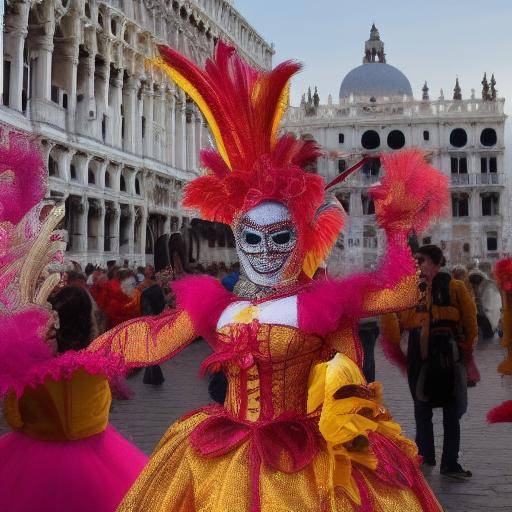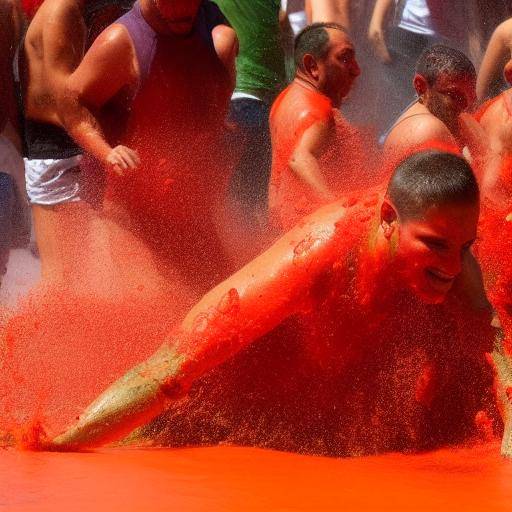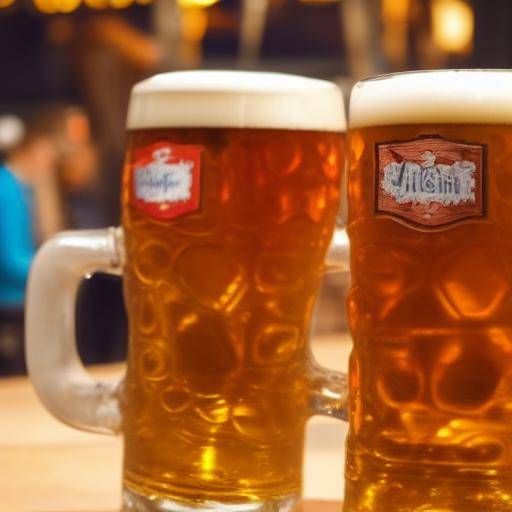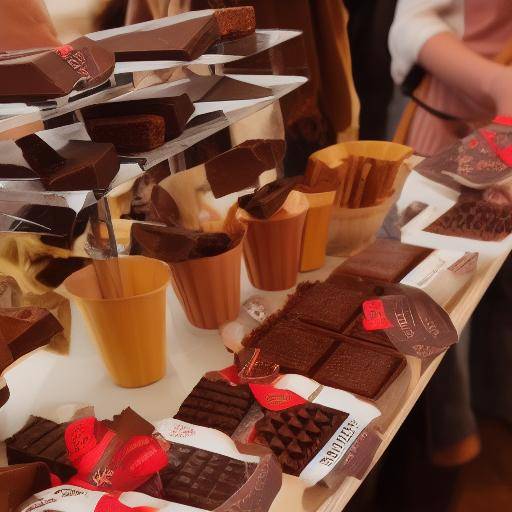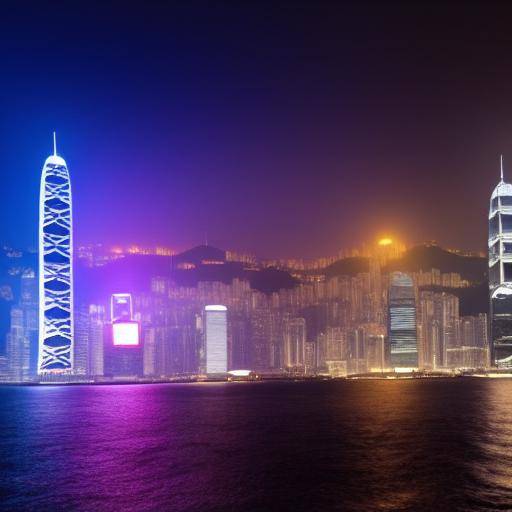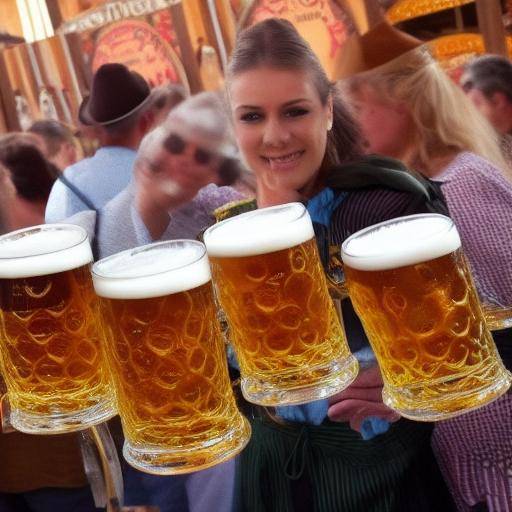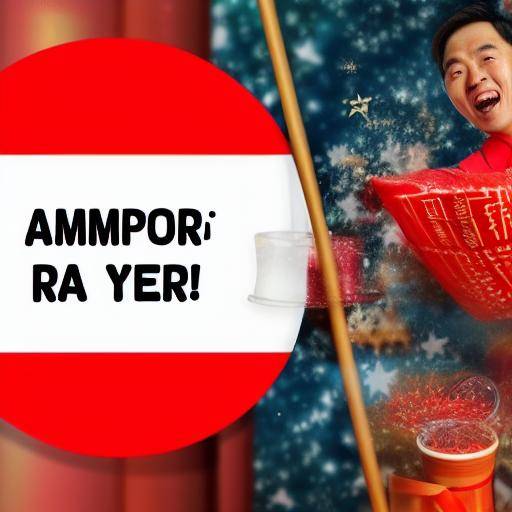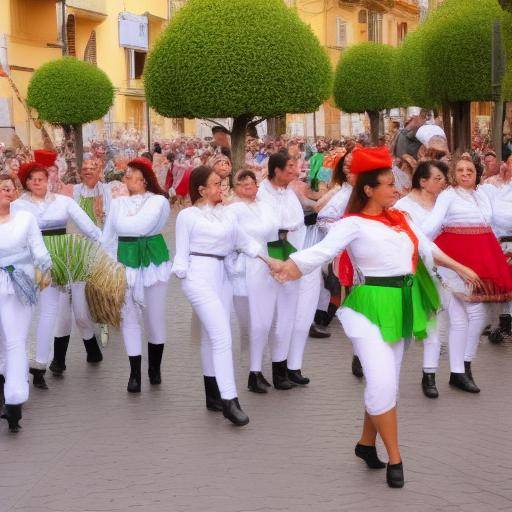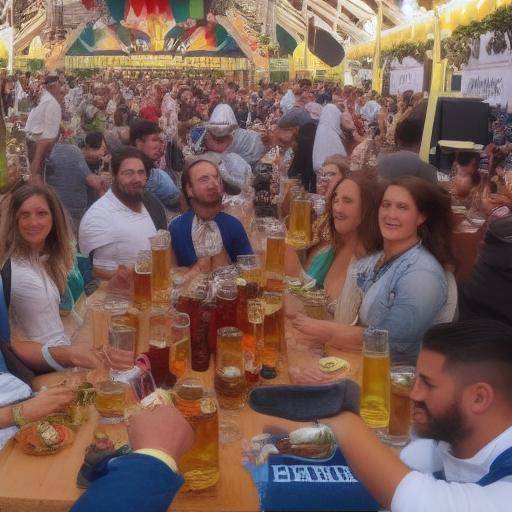
Welcome to the Oktoberfest in Munich! An emblematic event that celebrates culture, music and, of course, beer. In this survival guide, I will take you to a complete tour of this wonderful festival, offering you practical advice, historical information, deep analysis and much more. Prepare your dirndl or lederhosen and discover everything you need to know to enjoy the Oktoberfest in Munich.
Introduction to the Oktoberfest
The Oktoberfest is the world's largest beer festival. Every year, thousands of people from all over the globe meet in Munich during the last two weeks of September and the first days of October to enjoy this holiday. With origins dating back to the early nineteenth century, the Oktoberfest has evolved to become an iconic cultural celebration.
History and Background
The Oktoberfest has its roots in the royal wedding of the Crown Prince Louis I of Bavaria with Princess Teresa of Saxony-Hildburghausen in October 1810. The mass festival that surrounded the event was so successful that it was decided to repeat it the following year, thus marking the beginning of a tradition that lasts until today. Over the years, the festival has experienced various transformations, from its original character as a wedding celebration to becoming an event that highlights beer, traditional food, folk music and attractions. Today, Oktoberfest is an important part of Bavaria's cultural heritage and one of the largest tourist attractions in Germany.
Analysis in Deep
The Oktoberfest is not only a beer celebration, but also an economic engine for the Bavarian region. According to recent statistics, the festival attracts more than six million visitors each year and generates a significant economic spill. In addition, the cultural and tourist impact of the Oktoberfest extends far beyond the borders of Germany, attracting people from around the world interested in experiencing this unique tradition.
Comprehensive review
For those who wish to participate in the Oktoberfest, it is important to be prepared. From the choice of the appropriate traditional clothing to the understanding of the customs and labels associated with the festival, there are numerous details to consider in order to guarantee a rewarding experience without setbacks.
Comparative analysis
Compared to other beer festivals in the world, the Oktoberfest in Munich stands out for its cultural authenticity, the quality of served beer and the unique festive atmosphere. While other similar events can offer an exciting experience, few can be compared to the historical legacy and magnitude of the Oktoberfest.
Practical Tips and Accessible Tips
When attending Oktoberfest, it is essential to take into account certain practical advices that will ensure a more pleasant experience. From the accommodation reservation in advance to the management of expectations about the prices and the influx of visitors, there are a number of measures that can facilitate the stay during the festival.
Information and Views of Experts
To gain a deeper insight into the significance and importance of the Oktoberfest, it is valuable to consider the views of experts on the subject. Through interviews with historians, sociologists and brewers, it is possible to obtain a complete vision of the cultural wealth and the contemporary relevance of this legendary event.
Case Studies and Practical Applications
The application of the knowledge acquired on the Oktoberfest can be extended beyond the mere participation in the festival. When studying cases of local companies, entrepreneurs and event organizers, it is possible to obtain inspirational ideas on how to integrate Oktoberfest elements into other activities or projects.
Future Trends and Predictions
As the world continues to evolve, so does the Oktoberfest. Keeping abreast of new developments and anticipating emerging trends within the brewing industry and cultural tourism can provide an advantage in planning future editions of the festival.
Conclusions and FAQs
In conclusion, the Oktoberfest in Munich represents not only a celebration of beer, but a tribute to tradition, camaraderie and Bavarian culture. By acclimatizing to the festive atmosphere, visitors have the opportunity to immerse themselves in a world rich in history and vitality, thus demonstrating the lasting importance of this festival.
FAQs
1. When is the Oktoberfest held in Munich?
- The Oktoberfest in Munich is held annually during the last two weeks of September and the first days of October.
2. What is the origin of the Oktoberfest?
-The Oktoberfest originates in the royal wedding of the Crown Prince Louis I of Bavaria with Princess Teresa of Saxony-Hildburghausen in October 1810.
3. What kind of beer is served at the Oktoberfest?
-The beer served at the Oktoberfest is known as "Märzen", a variety of dark and well fermented lager beer.
4. Is it necessary to dress in traditional costumes to assist the Oktoberfest?
- While it is not mandatory, dressing in traditional costumes such as the dirndl for women and the lederhosen for men is a way to immerse yourself in the authentic experience of the festival.
5. What are some of the outstanding traditions during the Oktoberfest?
- Some iconic traditions of the Oktoberfest include the opening parade, the opening ceremony and the historic shooting of the first barrel of beer.
6. How many liters of beer are served during the Oktoberfest?
-During the Oktoberfest, approximately 7 million liters of beer are consumed.
With this survival guide, you are prepared to immerse yourself in the splendour of the Oktoberfest in Munich. Whether it is your first time or plan a return, make the most of this unique celebration and experience the rich Bavarian culture in its maximum splendour. Prost!

